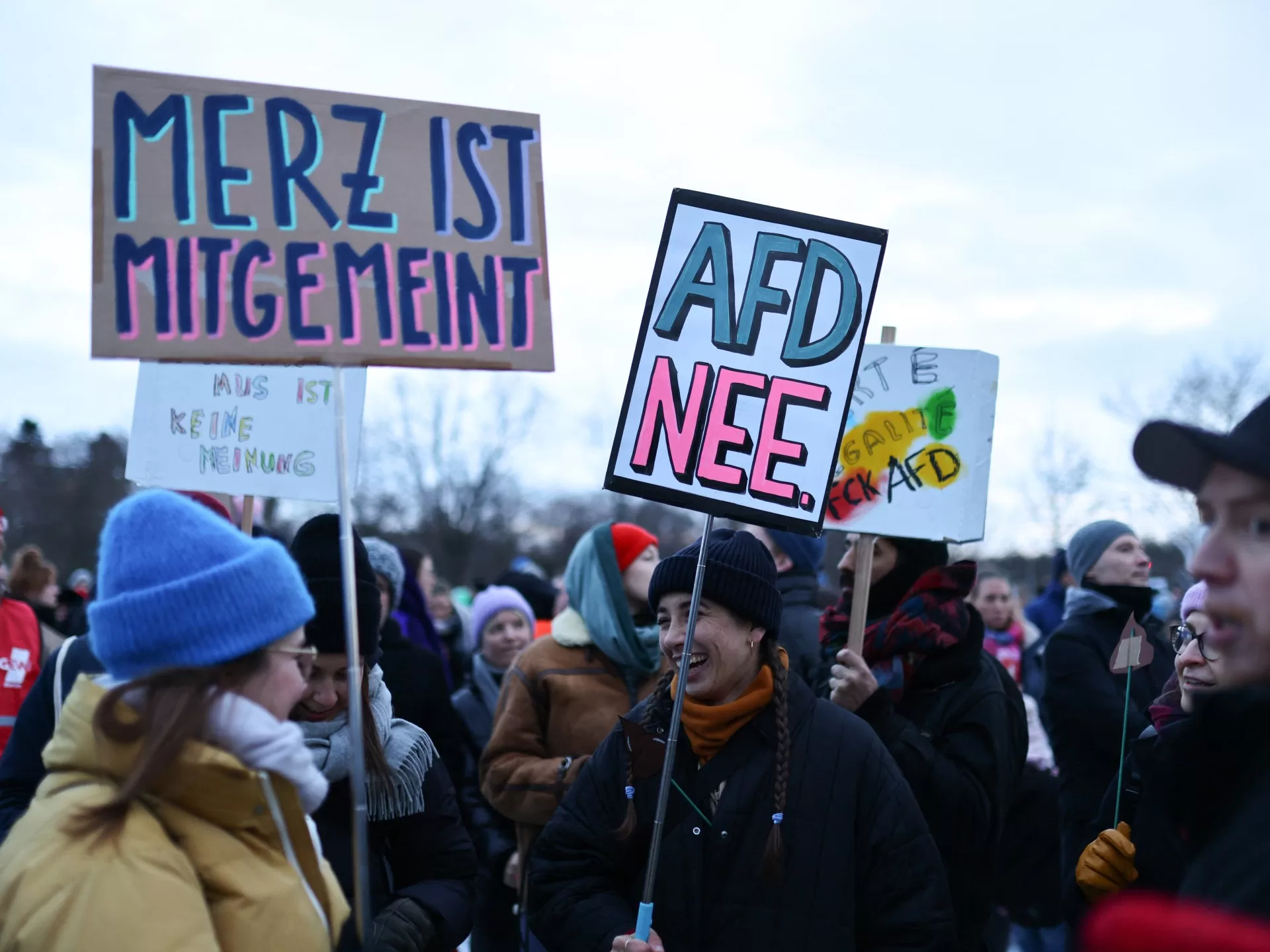Rallies to protest against the Alternative for Germany (AfD) political party are held in Berlin, Munich and other cities.
On Sunday, rallies against the AfD were held in Berlin, Munich and Cologne, as well as in more traditional AfD voting strongholds in eastern Germany such as Leipzig and Dresden.
While national polls show AfD in second place behind the main centre-right opposition bloc and ahead of the parties in the government, demonstrations against the far-right party gained momentum after a January 10 report from investigative news website Correctiv revealed that migration policies including mass deportations of people of foreign origin were discussed at a meeting of German right-wing extremists in Potsdam.
Among the participants at the talks was Martin Sellner, a leader of Austria’s Identitarian Movement, which claims there is a plot by non-white migrants to replace Europe’s “native” white population.
The AfD has denied the reported migration plans are party policy.
On Sunday, demonstrators outside the German parliament in Berlin carried signs that said “no place for Nazis” and “Nazis out”.
In Munich, protest organisers said 200,000 people attended, adding that they were forced to end the demonstration early due to overcrowding.
Katrin Delrieux, 53, told AFP in Munich that she hoped the protests against the far right would “make a lot of people rethink” their positions.
“Some might not be sure whether they will vote for the AfD or not, but after this protest, they simply cannot,” she said.
In Frankfurt, protester Steffi Kirschenmann told the news agency Reuters that the rallies are “a signal to the world that we won’t let this happen without commenting on it”.
Meanwhile in Dresden, the capital of the eastern region of Saxony, where the far-right party is leading in the polls, authorities had to alter the course of a protest march.
The procession was lengthened to make space for an “enormous number of participants”, police in Dresden said on the social media platform X.
Politicians, businesses take a stand
Business leaders have also voiced their concerns, with Siemens Energy supervisory board chairman Joe Kaeser telling Reuters the reports [revealed by Correctiv] trigger “bitter memories”.
German President Frank-Walter Steinmeier has also come out in support of the rallies across Germany and views them as a sign of strength against right-wing extremism.
In a video message on Sunday, Steinmeier said: “You are standing up against misanthropy and right-wing extremism; these people encourage us all.”
German Chancellor Olaf Scholz, who joined a demonstration last weekend, highlighted that any plan to expel immigrants or citizens alike amounted to “an attack against our democracy, and in turn, on all of us”.
He urged “all to take a stand – for cohesion, for tolerance, for our democratic Germany”.
Rechtsextremisten greifen unsere Demokratie an. Wir alle sind gefordert, deutlich Stellung zu beziehen: für unser demokratisches Deutschland. Und für unsere mehr als 20 Millionen Freunde, Arbeitskolleginnen und Nachbarn, die eine Migrationsgeschichte haben. #Kanzlerkompakt pic.twitter.com/Cs1Dj69TwM
— Bundeskanzler Olaf Scholz (@Bundeskanzler) January 19, 2024
